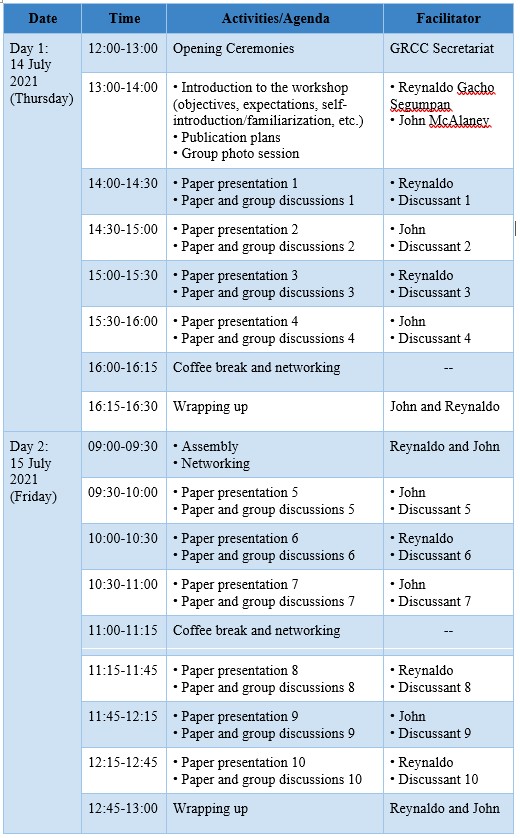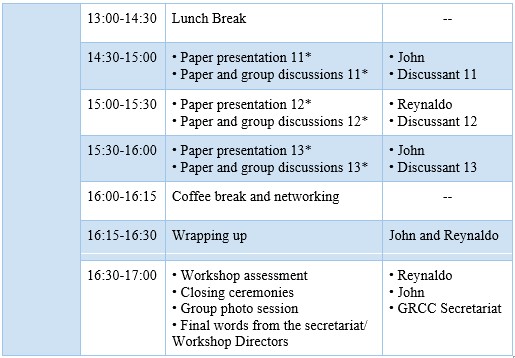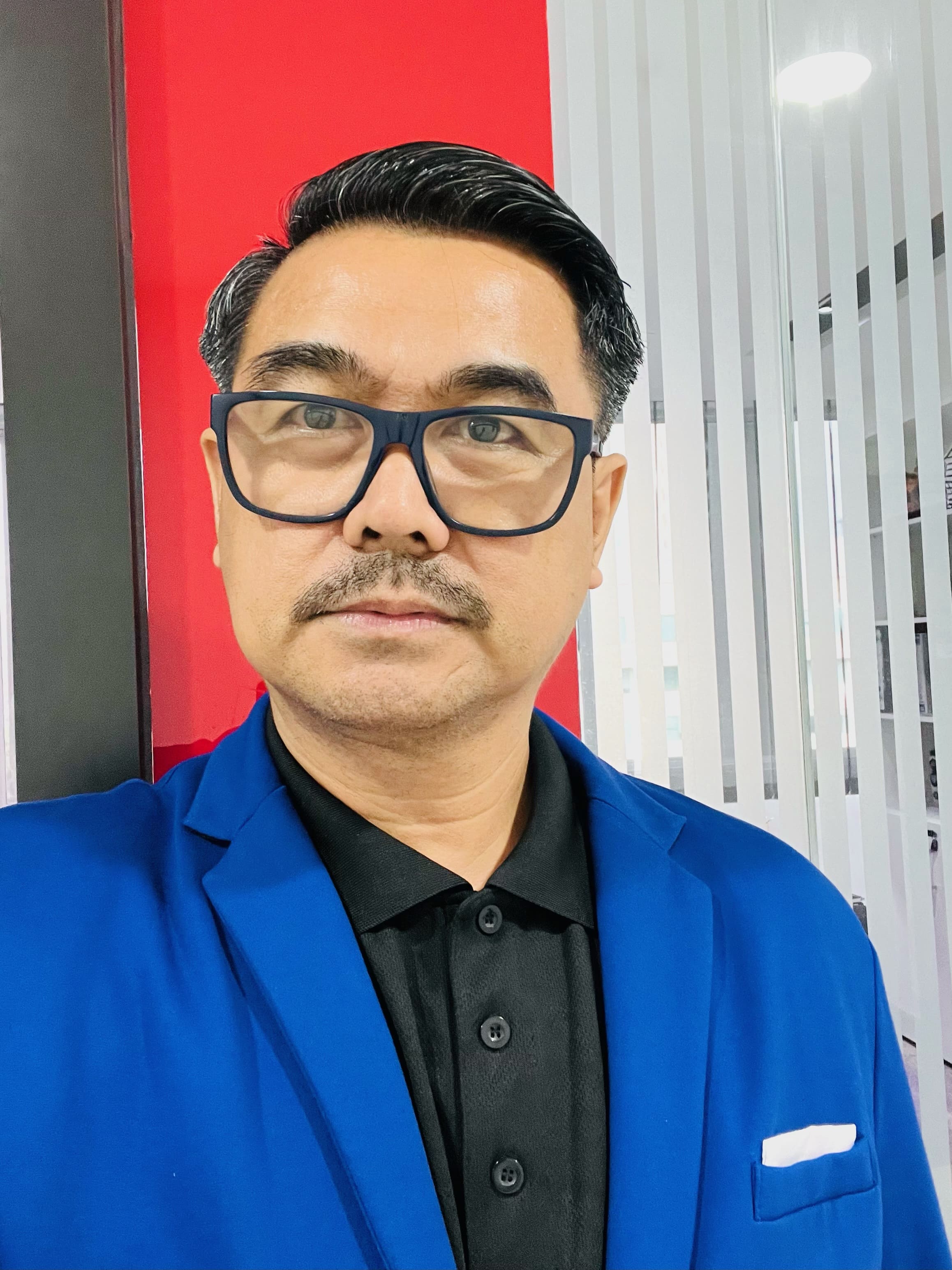Undoubtedly, the COVID-19 pandemic has been challenging educational leaders and key decision makers of higher education institutions (HEIs) to rethink and remodel their vision and notion of excellence. In the Gulf, in particular, how do/how should HEIs “metamorphose” during these difficult times? How do/should HEIs adapt to the situational demands and circumstantial expectations brought about by the pandemic? What educational reforms will HEIs continue to grapple with the ripples of the pandemic? What are the ramifications of the pandemic in the context of higher education reforms in the Gulf?This workshop is a timely and highly recommended platform for discourse, reflection, networking, and collaboration among higher education leaders and managers, quality education specialists, curriculum developers, researchers on higher education and quality management, and those who are interested in navigating, understanding, and exploring the challenges in the COVID environment and the lessons these hold for general higher education reform in the Gulf. Theoretical, empirical, policy-oriented, strategy-driven, and practice-inclined papers that examine challenges in COVID environments will be ideal for this workshop.
July 22-24, 2025, Cambridge UK
3 DAYS / 12 Workshops
MORE THAN 300 ACADEMIC PAPERS
Challenges in the COVID Environment: Lessons for Higher Education Reform in the Gulf
Undoubtedly, the COVID-19 pandemic has been challenging educational leaders and key decision makers of higher education institutions (HEIs) to rethink and remodel their vision and notion of excellence. In the Gulf, in particular, how do/how should HEIs “metamorphose” during these difficult times? How do/should HEIs adapt to the situational demands and circumstantial expectations brought about by the pandemic? W ...


Objectives and Scope of Workshop
Advance Quality Education in Gulf HEIs:
- Over the years, higher education institutions (HEIs) in the Gulf have been resolute in advancing the quality of education it provides to its constituents and stakeholders. National agenda and local initiatives have been in place in order to ensure that quality parameters are embedded not only in principles but also in practice. When the COVID-19 pandemic disrupted and distorted the higher education landscape, issues on quality education emerged as a global and a regional concern. For instance, in the Gulf Cooperation Council (interchangeably referred to as “Gulf” and “GCC” hereafter), countries including Bahrain, Saudi Arabia, Kuwait, Qatar, Oman, and the United Arab Emirates have reshaped their strategies and policy directions in order to address the demands of the New Normal, in particular, those that revolve around quality in higher education.
Explore Quality Education Drivers
- The pandemic has surfaced the need to rethink, reform, and revalidate our notion of quality in the context of higher education in the Gulf. This workshop also explores the drivers of quality education since the outburst and spread of the COVID-19 pandemic. More specifically, it examines how the pandemic (re)shapes the notion of quality education and transforms HEIs in the Gulf.
Interrogate Discourses, Assumptions, and Praxes
- The workshop will interrogate the current discourses, teaching-learning goals as well as methods and practices, and how the COVID environment has provided an impetus to necessitate higher education reforms during these critical and unprecedented moments in our educational epoch. It will highlight ontological (e.g., what is quality higher education during the pandemic?), epistemological (e.g., what constitutes an effective approach in dealing with the pandemic in Gulf higher education?), axiological (e.g., what ethical considerations are there in promoting higher education reforms during the pandemic?), and teleological (e.g., how should HEIs deal with COVID-19?) assumptions and praxes embraced by global, regional, and local higher education leaders and policy makers, researchers on higher education and quality management as well as curriculum development.
Navigate Experiences and Practices
- Moreover, the workshop navigates the experiences and practices of HEIs in the Gulf which revolve around the following questions, inter alia:
a. What are the challenges in the COVID environment and what lessons do these hold for general higher education reform in the Gulf?
b. How does COVID-19 pandemic drive disruptions and promote strategic thinking in HEIs in the Gulf?
c. What risk management and safety and health measures are put in place by HEIs in the Gulf? How do HEIs respond to stakeholders’ “safety behaviors” in public?
d. Is the concept of quality education getting nebular as the pandemic continues to upset HEIs globally and regionally? Why or why not?
e. What are the parameters of quality higher education during the pandemic? How do Gulf HEIs maintain quality education in the delivery of their programs and services?
f. What are the roles of the government and other private institutions/agencies in developing and in sustaining higher education initiatives despite the pandemic?
g. What yardstick is used by HEIs in the Gulf in (re)defining quality education during this New Normal period?
h. What are the problems and issues encountered by Gulf HEIs in pushing for higher education reforms during these challenging times? How are these problems and issues dealt with?
i. Is the international community’s recognition of quality of higher education in the Gulf outweighed by the pandemic? What reforms do HEIs in the Gulf put in place to safeguard quality education in the midst of the pandemic?
j. In adapting to the disruptions due to the pandemic, what education theories, leadership models, management principles, resource mobilization strategies, and development agenda are utilized by HEIs in the Gulf? How do these approaches interface with higher education reforms in the Gulf?
k. What lies ahead as the COVID-19 continues to mutate? Will quality education “co- mutate” with higher education reforms? What needs to be done in order to “vaccinate” higher education and higher education reforms in the Gulf?
5. Congregate for Collaborative Actions
So many questions, indeed, need answers. This workshop aims to congregate higher education scholars, key decision makers and policy makers, practitioners, researchers, graduate students, and those who are interested in contributing to the above-mentioned discourses. It will, hopefully, surface a range of ideal, realistic, and practical strategies and collaborative actions among the participants from various corners of the globe and backgrounds who are interested in Gulf affairs, in particular, in the issue of COVID-19 pandemic and its ramifications in a range of issues and challenges in Gulf higher education. Any intellectually passionate and methodologically curious individual from the Gulf region and beyond is welcome in this workshop.
Contribution of the Workshop
This workshop aims to make a modest contribution to the field of Gulf studies, such as the following:
1. Edited Book
A significant outcome of the workshop shall be an edited book. During the Gulf Research Meeting 2019, we directed a workshop on higher education in the Gulf with papers that focused in Oman and Saudi Arabia. A number of our participants were non-Gulf scholars and researchers whose works were centred on Gulf studies. Through our sustained passion and motivation as well as guidance and support from the Gulf Research Centre Cambridge (GRCC), Routledge/Taylor & Francis published the selected papers from our workshop as an edited book (ISBN 9781032004365; e-ISBN 9781003174172). We envisage the same scenario during the GRM 2022 – hopefully, we shall have submissions that will merit another edited book (higher education reforms vis-à-vis COVID-19 pandemic at the core of submissions), which is anticipated to be the second volume of our earlier publication (pre-pandemic). This edited book will be a useful and modest reference material on the challenges in the COVID environment and how these interlace with higher education reforms in the Gulf.
2. Extended Theorizing and Problematization
The workshop also serves as an ideal platform for scholars, academics, researchers, and educational leaders and quality education specialists to reframe, remodel, and reconstruct knowledge and practices on higher education reforms in the Gulf. With the COVID-19 pandemic embedded in the higher education landscape of the GCC countries, there is an urgent need for the academic, research, and other communities (e.g., shareholders, graduate students, private entities) to converge and problematize how COVID-19 shapes educational reforms and transforms HEIs in the Gulf.
3. Multi/Cross-Disciplinary Dialogue
The workshop expects to attract contributors from the Gulf and around the globe with multi/cross-disciplinary backgrounds. The participants’ specializations may stretch from various academic and research disciplines but they are united by a common interest: to explore how COVID- 19 pandemic drives higher education reforms in the Gulf. The workshop hopes to contribute to the brewing dialogues around the world and the region on “matters that matter” in higher education, such as the challenges of COVID-19, how to buoy up quality education and keep HEIs in the Gulf at par with the world’s best, and other higher education initiatives. Dialogues, conversations, and dialectical discourses are urgently needed in order to address the ramifications of the pandemic in higher education in the Gulf, and hopefully, this workshop serves as an ideal ecosystem for such purpose.
Anticipated Participants
The following participants are welcome in this workshop: higher education (HE) academics and consultants, HE leaders, managers, and administrators, HE policy makers and decision-makers, PhD researchers and other graduate/postgraduate students, private individuals interested in HE in the Gulf, QA and quality education specialists, and strategists interested in the impact of COVID-19 in Gulf HE reforms.
Draft of Workshop Agenda


* Note: If there will be 13 paper presenters, the last three sessions (presentations 11, 12, and 13) will be conducted virtually in the workshop venue itself. In-person closing ceremonies will follow thereafter. The program agenda will be adjusted accordingly if there will be more than 13 paper presenters. For instance, the sessions will continue until Day 3 (half day of 16 July 2021) or compress the schedule to fit all papers in two full days, whichever is practicable.
Publication Plan
We had a publication engagement with Routledge/Taylor & Francis when we directed a workshop during the GRM 2019. Thus, we are humbly obliged to capitalize on a similar experience (from proposal development to peer reviews, from proposal revision to manuscript editing/proofreading, from communication and follow-ups with contributors to contract review and coordination with GRCC until the publication stage) as Workshop Directors for GRM 2022.
Acknowledgment of and Agreement with the Workshop Director and Publication Guidelines
“We hereby acknowledge that we have downloaded and read the Workshop Director and Publication Guidelines and do express our agreement with all the provisions in the said guidelines.” – Reynaldo Gacho Segumpan and John McAlaney
Bibliography
International Association of Universities (2021). COVID-19: Higher Education challenges and responses. Available in https://www.iau-aiu.net/COVID-19- Higher-Education-challenges-and-responses.
International Association of Universities (2021). Regional/National Perspectives on the Impact of COVID-19 on Higher Education. Available in: https://www.iau- aiu.net/IMG/pdf/iau_covid19_regional_perspectives_on_the_impact_of_covid- 19_on_he_july_2020_.pdf.
Martin-Barbero, S. (2020). COVID-19 has accelerated the digital transformation of higher education. Available in: https://www.weforum.org/agenda/2020/07/ covid-19-digital-transformation-higher-education/.
UNESCO (2021). New UNESCO global survey reveals impact of COVID-19 on higher education. Available in: https://en.unesco.org/news/new-unesco-global- survey-reveals-impact-covid-19-higher-education.
Warn, J., & Tranter, P. (2001). Measuring quality in higher education: A competency approach. Quality in Higher Education, 9(3), 191-198.

